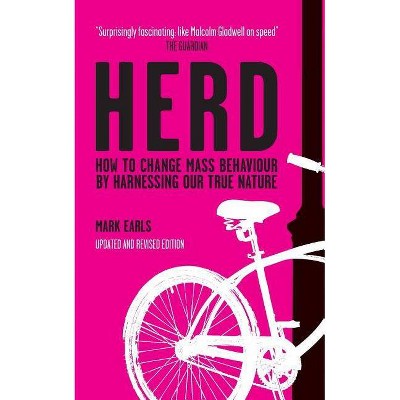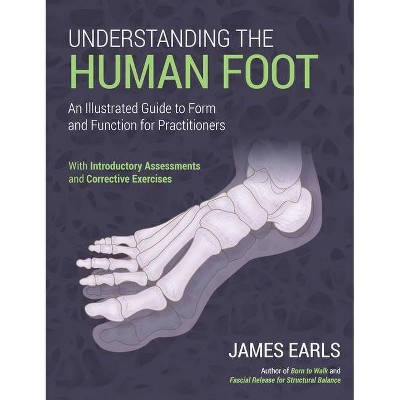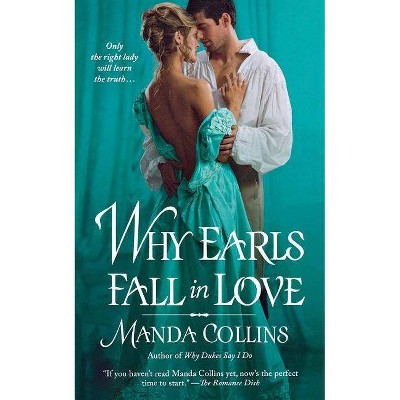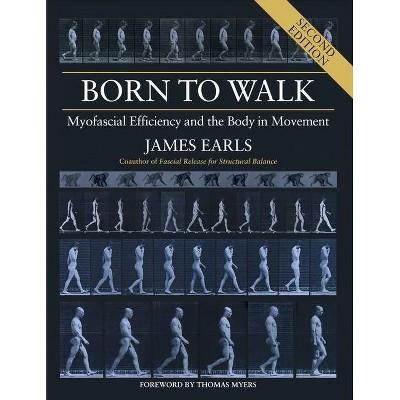Herd - by Earls (Paperback)

Similar Products
Products of same category from the store
AllProduct info
<p/><br></br><p><b> Book Synopsis </b></p></br></br>...fascinating. Like Malcolm Gladwell on speed.<br /> --THE GUARDIAN <p>HERD is a rare thing: a book that transforms the reader's perception of how the world works.<br /> --Matthew D'Ancona, THE SPECTATOR</p> <p>This book is a must. Once you have read it you will understand why Mark Earls is regarded as a marketing guru.<br /> --Daniel Finkelstein, THE TIMES</p> <p>This paperback version of Mark Earls' groundbreaking and award winning book comes updated with new stats and figures and provides two completely revised chapters that deal with the rise of social networking.</p> <p>Since the Enlightenment there has been a very simple but widely held assumption that we are a species of thinking individuals and human behaviour is best understood by examining the psychology of individuals. It appears, however, that this insight is plain wrong. The evidence from a number of leading behavioural and neuroscientists suggests that our species is designed as a herd or group animal. Mark Earls applies this evidence to the traditional mechanisms of marketing and consumer behaviour, with a result that necessitates a complete rethink about these subjects.</p> <p>HERD provides a host of unusual examples and anecdotes to open the mind of the business reader, from Peter Kay to Desmond Tutu, Apple to UK Sexual Health programmes, George Bush to Castle Lager, from autism to depression to the real explanation for the placebo effect in pharmaceutical testing.</p><p/><br></br><p><b> From the Back Cover </b></p></br></br>In 2003, the first white-painted bicycle shrine appeared on the streets of St Louis, Missouri, to commemorate a fallen rider. Soon, cities in other US states had their own versions; but today, we see these shrines in more than 80 cities around the world. Like the 'cellotaphs' - the rash of floral tributes that mark the site of road-accidents in the UK with cheap flowers and sentimental prose - this phenomenon seems to have come from nowhere and yet suddenly it is everywhere. <p>How do you explain the explosion of cultural phenomena of things like this? Like the adoption of text messaging when there has been little or no active promotion of the behaviour? How a Mexican wave happens? The emergence of online communities? Unless you have a good explanation of how these kinds of things arise, you won't have much chance of altering them.</p> <p>HERD explains that most of us have misunderstood the mechanics (the 'how') of mass behaviour because our thinking is shaped by misplaced notions of what it means to be human. This is why so many government initiatives struggle to create real change, why so much marketing money fails to drive sales, why most M&A programmes end up reducing shareholder value and most internal change projects don't deliver lasting transformation.</p> <p>Mark Earls uses a diverse range of different sources, anecdotes and evidence - from the comic Peter Kay and urinal etiquette, to international rugby and the rise of new musical stars - to show that we are at heart a 'we-species', but one suffering from the 'illusion of I'. In doing so, Earls challenges some of our deepest ideas to reveal the truth about who we are and what marketers, managers and governments can do to set about influencing mass behaviour. Bold in its conception and engaging in its execution, HERD offers the most radical new theory of consumer behaviour in a generation.</p> <p>This revised and updated edition articulates the provocative but highly practical model of mass behaviour and encourages the reader to put it to work in their organization and work, but more fundamentally, it changes how each of us sees ourselves and those around us: to see ourselves as first and foremost social creatures who do what we do in the company (and under the influence of others).</p> <p>'If you're not practicing what Mark Earls is preaching, get comfortable being part of the back of the pack. There are few who understand the human like Mark does!'<br /> <b>Robert Barocci, President/CEO, The Advertising Research Foundation</b></p> <p>'HERD is that rare thing: a book that transforms the reader's perception of how the world works. Mark Earls has mapped out the behavioural patterns of the post-millennial landscape with gripping accuracy and come as close as anyone to explaining why we do the things that we do, the way that we do them. An indispensable manual for the Web 2.0 era.'<br /> <b>Matthew d'Ancona, <i>The Spectator</i></b></p> <p>'HERD is a must read. These days, it's easy to be overwhelmed by the speed at which the world is changing. Mark Earls is one of those extraordinary folks that provides context and makes meaning of these changes. With HERD, Mark opens our eyes to a new way of thinking about human behaviour and how it will affect your business.'<i><br /> </i><b>John Winsor, Crispin Porter Bogusky</b></p> <p>'This book is a must. Once you have read it you will understand why Mark Earls is regarded as a marketing guru. And you will feel as though you understand the world a great deal better. And the other reason you have to read it? Everyone else is.'<br /> <b>Daniel Finkelstein, <i>The Times</i></b></p> <p>'This book has a vital place in the fast-growing library of books seeking to find newer, more accurate models of human behaviour. Just like rational agency, it seems individual agency may have been dangerously overrated. The implications of this stretch far beyond any one discipline or field of activity.'<br /> <b>Rory Sutherland, IPA President, Vice-Chairman Ogilvy UK</b></p><p/><br></br><p><b> About the Author </b></p></br></br><b>Mark Earls</b> is one of the leading thinkers about brands, marketing and mass behaviour. <p>He has held senior positions in some of the largest and most influential communications companies in the world - his last job was as chair of Ogilvy's Global Planning Council, prior to which he was Planning Director at the revolutionary St. Luke's Communications in London.</p> <p>His written work has regularly won awards from his peers and is considered by many to be amongst the most influential being written about consumer and mass behaviour today. His first book, <i>Welcome to the Creative Age</i>, was widely read and discussed and has been translated into several languages. HERD has received recognition and praise in a number of fields and Mark has travelled extensively to talk about HERD with audiences drawn from both the business and the public sector.</p> <p>Mark lives in North London but would rather be watching cricket or fishing, ideally somewhere sunny.</p>
Price History
Price Archive shows prices from various stores, lets you see history and find the cheapest. There is no actual sale on the website. For all support, inquiry and suggestion messagescommunication@pricearchive.us




















